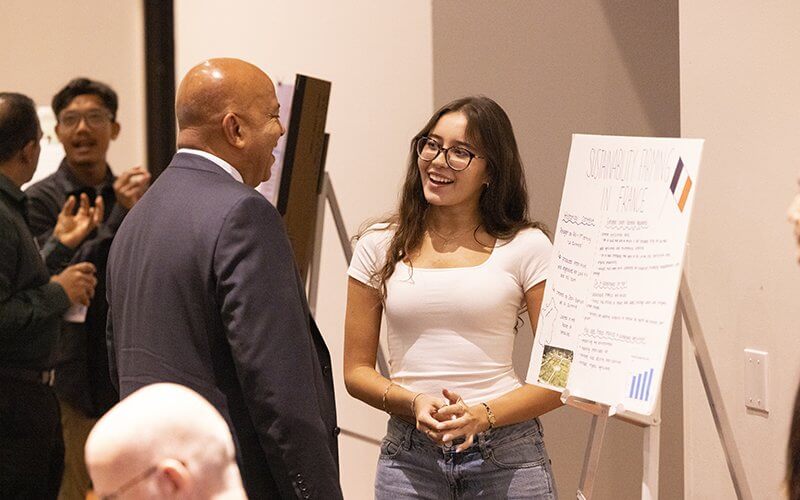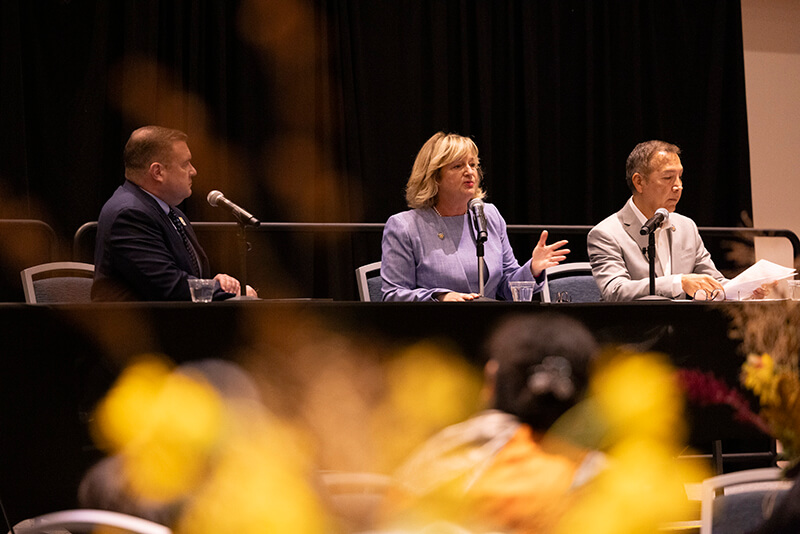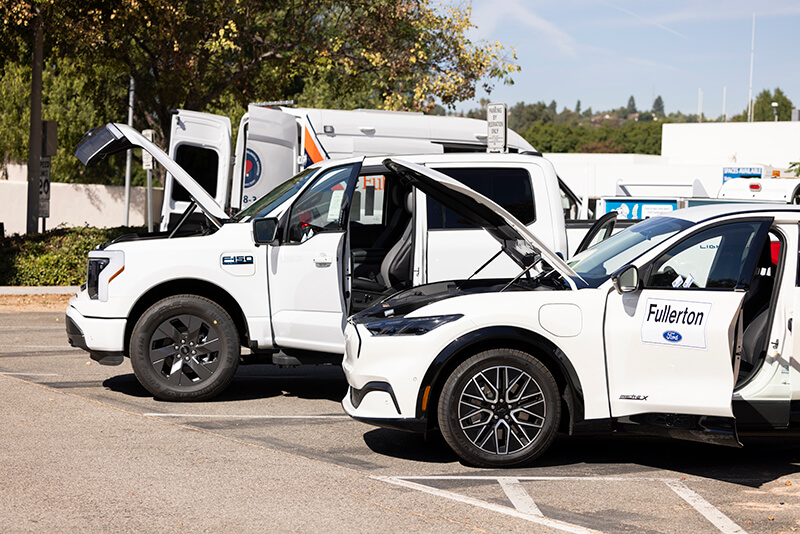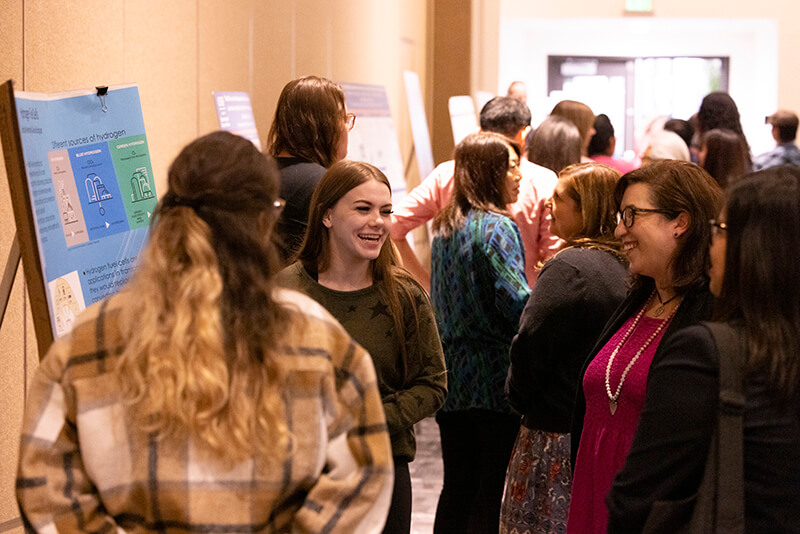
Cal State Fullerton is at the forefront of making sustainability efforts accessible and affordable for Orange County communities, preparing students to be pioneers in clean energy and partnering with local industry experts to achieve the county’s climate goals.
The university hosted its third annual Energy and Sustainability Summit on Oct. 21 alongside founding sponsor Southern California Edison and sponsors Wells Fargo and Amtrak San Joaquins. The event featured CSUF alumni, industry experts and local elected officials, including Orange County Board of Supervisors members Katrina Foley and Vicente Sarmiento and Zack Valdez, strategic adviser of the manufacturing energy supply chain office in the U.S. Department of Energy.

The two panels focused on a variety of topics, including the impact of the Inflation Reduction Act and Orange County’s Climate Action Plan; resources available for local governments looking to invest in sustainability efforts; and CSUF’s role in paving the way toward a greener future.
CSUF President Ronald S. Rochon said that the university is committed to helping Orange County reach its climate goals, which include cutting air pollution, decreasing the demand for all fossil fuels and becoming carbon neutral by 2045.

In addition to reducing gas emissions with 100 electric vehicle charging ports available on campus, the university has invested in initiatives that focus on energy efficiency, water conservation, waste reduction and sustainable transportation.
This includes using LED lights in buildings to reduce energy consumption and automation systems to manage heating, cooling and lighting. Construction and renovation projects on campus also incorporate sustainable design elements, such as energy-efficient windows, drought-tolerant landscaping, rooftop solar panels and low-flow plumbing.
For its exceptional programs, policies and practices related to sustainability and the environment, CSUF was named among the nation’s environmentally sustainable colleges in the Princeton Review’s Green Colleges: 2025 Edition, and its green college list.
“These efforts demonstrate Cal State Fullerton’s commitment to fostering an environmentally responsible campus while serving as a model for sustainability in higher education,” said Rochon.
Students Explore Sustainable Solutions
The summit also spotlighted CSUF student researchers who are collaborating with faculty experts across campus to confront climate issues and find innovative solutions.
From engineering and biochemistry to art and biological science, students had the opportunity to present their research to campus and local leaders, network with industry experts and share their findings on such topics as EV charging, urban ecosystems and sustainable artmaking.
“With unprecedented federal and state investments in clean energy and technology, the demand for skilled workers in this industry will grow fast. This means that Cal State Fullerton must be ready to educate, train and prepare a diverse workforce to meet the needs of this region and beyond,” said Rochon. “By fostering opportunities, and creating robust pipelines to green and clean energy jobs, Cal State Fullerton plays a pivotal role in training and educating skilled workers who can drive this industry’s growth.”

Faced with the rapid depletion of fossil fuels worldwide, chemistry student Jordan Kennedy and biochemistry student Alexia Rodriguez conducted research on hydrogen fuel cells, finding that green hydrogen can serve as renewable energy for transportation vehicles and batteries used in portable electronic devices.
Rodriguez and Kennedy said that the summit provided them with opportunities to not only share their knowledge, but to also advocate for why it’s important to include students in conversations about a clean energy future.
“Renewable energy is a serious topic when it comes to saving our planet and finding solutions that don’t cause more harm,” said Kennedy. “It’s important for us to keep pushing toward these issues and encouraging people to talk about them.”